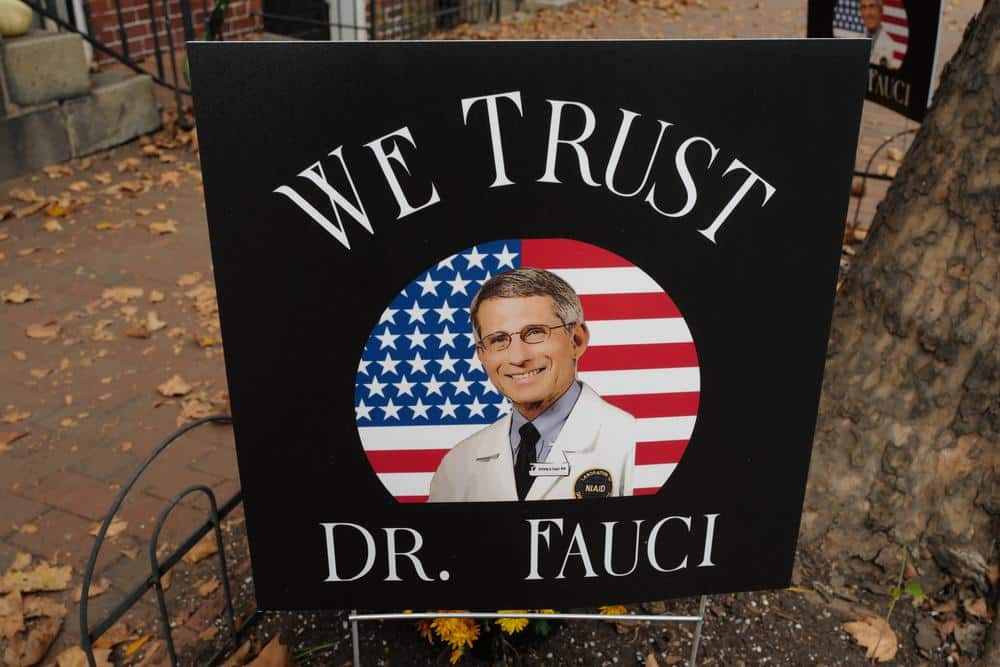In the final stretch of his term, former President Biden granted a sweeping pardon to several close associates and family members. Anthony Fauci, the former director of the National Institute of Allergy and Infectious Diseases, was included in this group.
The pardon shielded Fauci from any potential legal entanglements linked to his tenure as NIAID Director, his work on the White House Coronavirus Task Force, his role in the White House COVID-19 response team, or his service as Biden’s Chief Medical Advisor.
The Real Reasons Behind The Pardon
Biden’s explanation for these pardons focused on what he described as the destructive effects of “baseless and politically motivated investigations.” According to the public statement, even an unfounded inquiry can leave a person’s financial security and reputation in tatters.
Biden’s defenders argued that such investigations do harm whether the individuals involved are actually guilty of wrongdoing or not. This rationale, however, is especially notable because it mirrors the very tactic used to discredit Donald Trump during his time in the White House. By avoiding further investigations of its key justification, the administration revealed a desire to protect those who might have been forced to withstand intense legal scrutiny.
Unsettling Revelations From Fauci’s Past
Fauci’s career is not without controversy, and his record has drawn criticism for incidents stretching back decades. These concerns became more widely discussed following the release of a book by Robert F. Kennedy Jr., which outlined disturbing experiments carried out on HIV-positive foster children in New York City between the late 1980s and early 2000s.
Another experiment involved locking the heads of beagle puppies in cages containing insects that fed on their flesh. Had Fauci faced a federal investigation, episodes like these could have resurfaced, potentially tarnishing his reputation and undermining the public image of someone Biden once called a “true hero.”
Fauci’s “Facts” Never Really Checked?
Fauci’s track record of overestimating threats posed by certain viruses stretches back to the 1970s when he made dire projections about a strain of swine flu. That scenario ultimately led to millions of dollars in damages paid out by the government for vaccine-related injuries.
He also issued ominous warnings about the bird flu in 2005, the swine flu in 2009, and the Zika virus in 2016. The threats proved far less severe in each instance than Fauci had claimed. Yet, these alarms often prompted the government to channel billions of dollars into public health agencies and research grants.
Suspicious Lockdowns, Double Masking, And Fauci’s Slippery Positions
Fauci became one of the most prominent figures in the government’s COVID-19 response. At the start of the pandemic, he publicly stated that cloth masks were ineffective at stopping the spread of the virus. Later, Fauci reversed this position and championed universal masking. Then, double masking.
When pressed on his initial statements, he admitted that he had misled the public to protect the supply of specific masks for healthcare workers, even though healthcare facilities mainly used a different type of mask. As the pandemic progressed, Fauci also urged strict lockdowns, then denied doing so, and castigated states like Florida for reopening too early.
Evidence that masking and lockdowns did little to stop the spread did not dissuade him from continuing to advocate for these measures long after they had proven to be minimally effective. He also endorsed school closures and child masking despite early data indicating that children faced a low risk of contracting and transmitting COVID-19. Additionally, Fauci made several prominent claims about COVID-19 vaccines that were later shown to be incorrect.
New Questions About Gain-Of-Function Research
While issuing poor predictions and conflicting health advice is not a crime, the fear of a federal probe likely centered on suspicions regarding Fauci’s possible role in facilitating the onset of the COVID pandemic. Scientists sometimes use “gain-of-function” research to make viruses more infectious or lethal in the lab, hoping to study mutations and potential treatments.
This practice carries significant risks since a leak of an enhanced virus could have catastrophic effects. An NGO funded by Fauci’s department supported gain-of-function research on bat coronaviruses at the Wuhan Institute of Virology in China.
It had received federal funds for such research going back to the period when federal support for gain-of-function work was under a ban. While no firm evidence links these experiments to the coronavirus that emerged in late 2019, many unanswered questions remain about US involvement in related projects.
Suspicion grew after Fauci, under oath, denied that his department had funded such research in Wuhan. An investigation could have tested the truth of that denial, potentially bringing perjury charges if evidence showed otherwise.
Political And Financial Motivations
Had the Department of Justice delved into Fauci’s record, a great deal of his past—controversial experiments, inconsistent COVID recommendations, misleading statements… would have been thrust into the spotlight. Such a spotlight would have embarrassed a political establishment that long celebrated his work and provided him with access to substantial resources.
More problematic for those in power might have been a renewed public focus on why a bureaucrat with so many high-profile failures was repeatedly promoted and lauded until he retired with a sizable personal fortune.
Gain of Fauci?
The answer may lie not in his prowess for safeguarding public health but in his ability to secure vast sums of taxpayer money for public health agencies, pharmaceutical firms, and parts of the healthcare industry. The pandemic, which brought billions more to these institutions, provided yet another example of how funds can flow swiftly toward specific interests in times of crisis.
Why Uncle Joe Really Pardoned Fauci
Had an official investigation been allowed to move forward, it could have sparked deeper questions about the motives behind decades of public health policy. Scrutiny of the structure that rewards officials, not for factual accuracy, but for directing resources and decision-making power to influential agencies and businesses might have ensued.
Faced with that possibility, Biden’s pardon appears to have been a deliberate effort to prevent such an inquiry. By removing the threat of legal proceedings against Fauci, the administration closed the door on questions about gain-of-function research, perjury, and the many earlier controversies that have hovered around Fauci’s career.
This decisive move ensured that the narrative around Fauci and public health policy would remain free from the kind of retrospective analysis that could expose systemic flaws and conflicts of interest.

Dr. Fauci’s Legal Problems Are Not Over… They’re Just Beginning
A presidential pardon is far more than a mere gesture of authority. It’s both a formal release from legal consequences and a discreet moral assertion. In the 1915 Supreme Court case Burdick v. United States, the Court declared that accepting a pardon “carries an imputation of guilt and acceptance of a confession of it.”
This ruling, which involved a journalist who refused to testify about his sources and was subsequently pardoned by President Wilson, establishes that a pardon is no enchanted erasure of wrongdoing. Instead, it functions as a legal acknowledgment of responsibility, meaning any beneficiary who fails to refuse a pardon effectively concedes to the charges it rescinds.
This principle is particularly relevant to President Joe Biden’s recent decision to grant clemency to Dr. Anthony Fauci. Dr. Fauci must wrestle with its moral and legal implications by agreeing to the president’s pardon, which implicitly affirms his guilt. Fauci, revered by some as America’s leading public health authority and reviled by others as a central figure in what they perceive as an unprecedented public health crisis, is accused of serious transgressions.
The allegations of perjury before Congress and involvement in gain-of-function research, which critics claim may have triggered the COVID-19 pandemic, are not mere speculations. They strike at the core of the public’s faith in scientific institutions and governmental oversight. By accepting Biden’s pardon, Fauci tacitly acknowledges to having lied under oath… a grave offense… and to being accountable for policies that adversaries argue led to extensive suffering and loss of life.
If Fauci truly believed in his innocence, rejecting the pardon would have been the most effective way to uphold his reputation. However, accepting the pardon leaves an enduring stain on his professional history… a silent admission of guilt.
No Room For Admitting Doubt
Burdick v. United States leaves no room for doubt: accepting a pardon is tantamount to admitting guilt. President Biden’s decision to pardon Dr. Fauci shields him from potential legal consequences and implicitly confirms his guilt. Each individual’s failure to reject the pardon reinforces this legal and moral truth.
If a pardon serves as both a respite and an implicit admission of guilt, then Biden’s decision exposes a troubling readiness to compromise accountability for political convenience. In doing so, the administration underscores the fragility of justice in an era when its most serious threats may originate from within.









